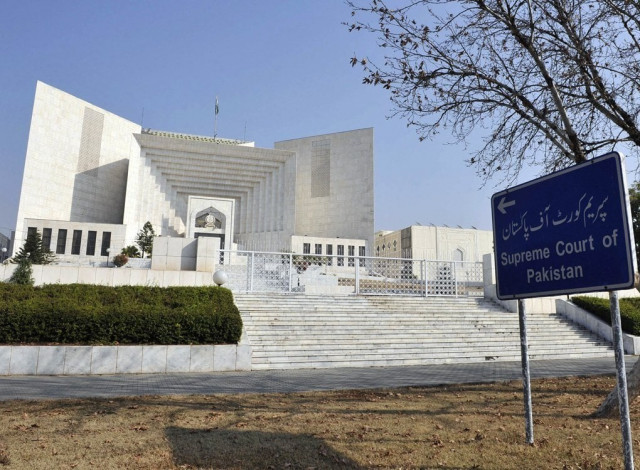SC upholds cancellation of evacuee property sale
Endorsing LHC ruling, bench dismisses appeal of private appellants

The Supreme Court has upheld the Lahore High Court (LHC) decision regarding the cancellation of the sale of Evacuee Trust Property Board (ETPB) properties to private individuals in Rawalpindi.
A division bench of the apex court led by Justice Ijazul Ahsan heard a case of property belonging to the ETPB in Raja Bazar, Rawalpindi and decided the case in favour of the ETPB respondent.
After hearing both sides at length, the bench dismissed the appeal of private appellants along with other applications and upheld the LHC judgment.
The property was sold in the year 1992, in pursuance of the approval given by the social welfare federal minister in 1977, by the ETPB official later on the letter of the deputy secretary of ministry.
The ETPB challenged soon thereafter the sale deed on different grounds before different courts and finally, the matter was brought to the Supreme Court against the LHC judgment of January 1, 2022.
The appellants and others through three different counsels submitted in court that they had a valid sale deed executed in 1992 through the ETPB official on the basis of the letter of the deputy secretary of ministry.
They maintained that the sale deed was valid and the LHC order was not sustainable, in revision jurisdiction.
Representing ETPB, Counsel Hafiz Ahsaan Ahmad Khokhar argued that the federal minister in 1977 had no authority and power under the ETPB law to accord approval for such alleged sale, and no evacuee property could be sold and disposed of outside the scope of Evacuee
Trust Properties (Management and Disposal) Act, 1975.
The lawyer submitted that the appellant in league with the officials got a letter issued and executed a sale deed by sheer misrepresentation and without prior approval of the federal government.
He contended that a letter obtained through collusion could not be treated as the direction of the federal government.
He argued that disciplinary action was also taken and recommended against responsible officials who were involved in such a collusive sale deed.
Khokhar submitted that the meaning of federal government and its conduct of business was mentioned and prescribed in Articles 99 and 173 of the Constitution.
He said after the 18th Constitutional amendment by the Cabinet, the sale executed in 1992 in favour of the private appellants based on the approval of the social welfare minister in 1977 was unauthorised.
He said the sale deed was executed by an incompetent authority which was violative to the ETPB 1975 and the Constitution and could not be protected.
He further argued that there was neither any approval by the ETPB nor the federal government regarding the alleged sale deed and that the whole case was made and started by the appellant on the letter of approval by then federal minister, who under the law did not have the authority to issue such instructions.
The ETPB lawyer argued that the property could only be sold after adopting the due process and with the approval of the Board and then on such recommendations to the federal government under sections 4, 6 of the ETPB 1975.
It was further said that there was no approval of any sale deed given either by the ETPB or the federal government in the present case.
The counsel said the suit property worth billions of rupees obtained with collusion through a nominal price of around Rs200,000 by private appellants in 1992, was based on fraud and was totally unauthorised and without lawful authority.



















COMMENTS
Comments are moderated and generally will be posted if they are on-topic and not abusive.
For more information, please see our Comments FAQ